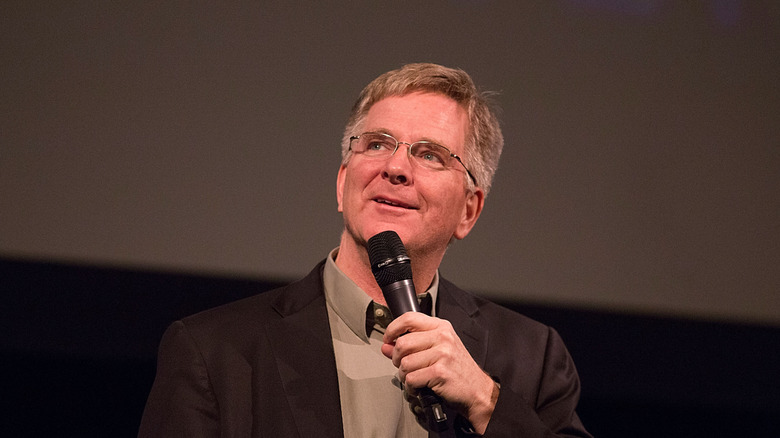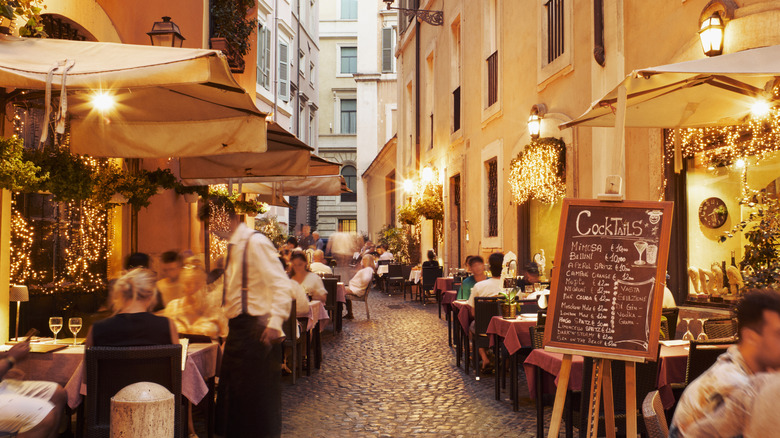Rick Steves Reveals The 3 Words You Never Want To See On A Restaurant Sign In Europe
Eating abroad is tough. It's hard to find the best spots when you're already navigating an unfamiliar country and culture, and if you're traveling to a famous destination, the trouble doubles. And tourist traps aren't relegated to the United States; they're all over the world, and their intent is to, well, trap tourists like you. After decades in the travel industry, writer and TV star Rick Steves has learned to avoid such places. During a 2025 talk, Steves gave the audience his advice for keeping clear of tourist traps.
"If you're a smart eater, you don't go to the most crowded, touristic, high-rent square, and look for a restaurant that says in big English letters 'no frozen food,'" Steves said. He went on to tell viewers that they should stay away from any establishment with a pre-printed (and unchanging) menu with lots of courses written in three languages.
This advice is common sense, as Steves acknowledged. After all, "no frozen food" typically isn't a sign that you're in for fine dining, no matter where you are. It's fine for fast food joints and casual chains, but you're not in Europe for food you could find at Chili's.
But Steves didn't just tell viewers what to avoid: He also gave advice on finding food that's worth your money. "I like to go three blocks away, find a little no-name place on a low-rent location, thriving with an enthusiastic local clientele," he explained. "And I look for a small, handwritten, one-language menu."
How to find the best restaurants when traveling abroad
Steves explained that his experience traveling with local guides has given him a knack for finding great food on a budget. There's a logic to this advice, too. "It's a small menu because they are interested in serving food profitably but at a good price, it is handwritten because it's shaped by what's fresh in the market this week, and it's one language because they're targeting locals rather than tourists," he said. Steves is a fan of eating seasonally: It's the reason why he tells fans to avoid French onion soup in the summer.
Steves' technique isn't the only way to find superb local food. Anthony Bourdain took a higher-tech approach: He consulted the internet. "We spend a lot of time looking for local bloggers who have been documenting street food or indigenous specialties around the city or town for a while," Bourdain explained to National Geographic in 2011. "There's always somebody and they are often very, very good." But, no matter what technique you use, stick to Steves' rule. "No frozen food" is a warning, not a reassurance.

